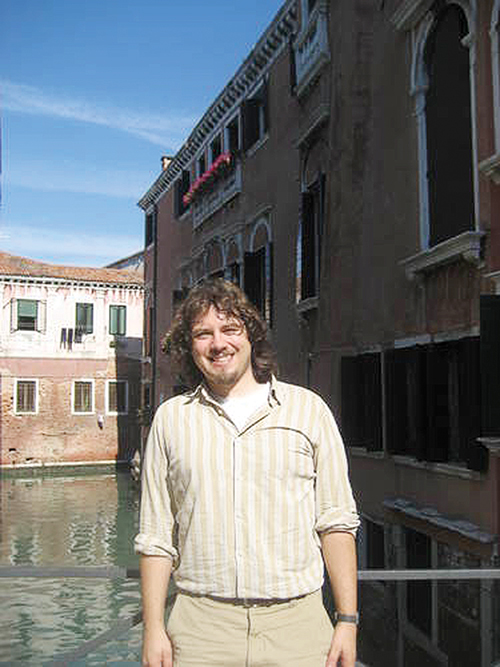How does news coverage affect controversial science? Friday afternoon found graduate students of Portland State’s communication program eagerly awaiting a discussion of the topic by PSU alumnus Dr. Eric Jensen.
Professor debates news and science

How does news coverage affect controversial science?
Friday afternoon found graduate students of Portland State’s communication program eagerly awaiting a discussion of the topic by PSU alumnus Dr. Eric Jensen.
The presentation was called “Media Coverage of Therapeutic Cloning,” which is one focus of Jensen’s upcoming book Therapeutic Cloning: Globalized Scientific Controversy and the Public Sphere.
In the presentation, Jensen outlined the models he used for his research in this topic, how he focused on the role of journalism in controversial science and what his findings were.
Jensen was very enthusiastic about sharing his work with current PSU communication students and what they might learn from it.
“[They] would be able to see from my presentation how research on a specific area of media coverage can be used to shed light on big, important issues, such as the role news media play in democracy,” he explained.
Jensen focused on therapeutic cloning because it was a timely issue while he was doing his research. Reading for themes in media coverage, he found that coverage of a given issue in the United Kingdom was vastly different from that in the United States. Jensen then explored the reasons for the difference.
Professor Dave Ritchie of the PSU Department of Communication said there was much to learn from Jensen’s research methods.
“Dr. Jensen’s methods would be quite useful for current PSU students who are interested in doing research on media coverage of any topic—and I am looking forward to his methods textbook when it is finished,” he said.
Dr. Cynthia-Lou Coleman, chair of the communication department, agreed that the research methods Jensen used are still of interest given the patterns he found in his research.
“The competitive nature of news is really common and is important [to consider] even now,” she said. “It would be interesting to see if those kinds of patterns still exist.”
Jensen’s system of research is very relevant to communication students, Coleman said.
“[There is a] research methods class that our undergraduate and graduate students take and [this] methodology is very much [what they] study,” she said. “News coverage of a [historical event] and what that news coverage is saying about a society is very important. That’s what Dr. Jensen is getting at, is what [our] news coverage is saying about our nation.”
The presentation was a homecoming of sorts for Jensen. After completing his associate’s degree at Clark College in Washington he studied at PSU full time from 2000 to 2003. He graduated with his bachelor’s degree in communication in 2002 and his master’s degree in communication in 2003. After graduating from PSU, Jensen received a Gates Cambridge Scholarship to Cambridge in the U.K., where he pursued a doctoral degree in sociology.
Jensen said he decided to attend PSU because of the closeness of the campus, and chose a communication degree because of the many interesting possibilities available in the program.
“I chose to study at PSU because it was the local university for me. I found communication to be a fascinating and wide-ranging discipline,” Jensen said. “I thoroughly enjoyed my studies, including classes in other disciplines such as psychology and sociology. The content I learned was very useful when I went to Cambridge.”
Jensen advises current communication students to start planning their next step as soon as they can.
“Start planning your next move post-degree as early as possible, whether that’s a job or further study,” he said. “If it’s a job, start developing relevant experience ASAP by contacting businesses in your desired field of employment and offering your services, as a free intern if necessary.”
Having an open mind is also a necessity, Jensen said.
“Apply widely for interesting opportunities; you never know which applications or contacts will bear fruit,” he said.
Currently, Jensen is an assistant professor at the University of Warwick in the U.K., where he co-convenes the Master of Science program in Science, Media and Public Policy. His area of expertise is in impact evaluation and research on the impacts of public engagement. He is co-editor of the recently published book Culture and Social Change: Transforming Society through the Power of Ideas.
Jensen’s extensive work and information regarding Friday’s presentation is available on his website, warwick. academia.edu/EricJensen.






